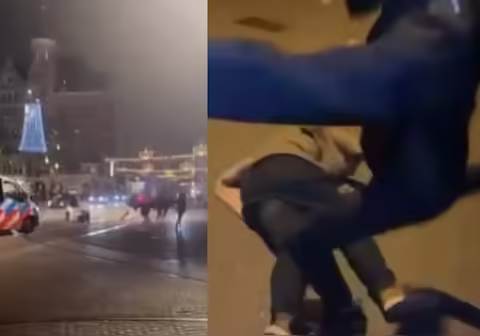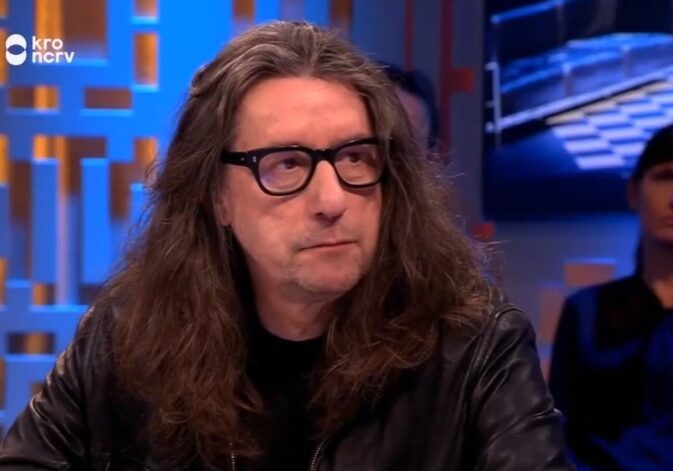Australia/Israel Review
Rome and Jerusalem
Nov 3, 2008 | Amotz Asa-El
By Amotz Asa-El
Challenged by a rising tide of liberalism, a quixotic Pope Pius IX banned participation in democratic elections and inspired a Vatican Council declaration that the pope was infallible.
That was in 1870. Seven decades later another Pope Pius, the XII, was also challenged by a rising political tide, only this time it was Nazism rather than liberalism. The papal response was quite the opposite of tilting at windmills. That at least is how his many critics feel, as they question not only the infallibility but also the morality of the man historian John Cornwell described as “Hitler’s Pope”. Now, as the Vatican weighs beatifying the controversial wartime pontiff whom, most historians agree, remained silent while the Jewish nation was being exterminated, his ghost is eerily stirring a historical, theological and diplomatic brouhaha.
The Vatican provoked the controversy twice: First, while warmly eulogising Pius on the anniversary of his death, Pope Benedict XVI said he would like to see Pius beatified, which is a prerequisite to canonisation. And secondly, the Vatican official in charge of the beatification process said that Pope Benedict’s visit to Israel, which has been pending since he was formally invited by President Shimon Peres last year, is now conditioned on the removal of a photo caption condemning Pius at the Yad Vashem Holocaust Memorial in Jerusalem.
Israel’s response was quick and harsh.
“The intention to beatify Pius XII is unacceptable,” said Diaspora Affairs Minister Isaac Herzog, who is also in charge of the Jewish state’s ties with worldwide Christianity.
Vatican officials responded in kind. Israeli attempts to “interfere” with the beatification process are “tiresome”, said Cardinal Andrea Cordero Lanza di Montezemolo, who was involved in the creation of the Vatican’s diplomatic relations with Israel last decade.
Clearly, the case against Pius XII, first made in German Protestant playwright Rolf Hochhuth’s The Representative, remains wide open even 45 years after that successful fictional drama was followed up with authoritative historical research.
Studies of Pius’s pronouncements throughout the war indicate that he never came out openly and explicitly in defence of the Jews. According to historian Saul Friedlander, whose 1964 study “Pius XII and the Third Reich” paved the way for all subsequent research on the issue, the pontiff’s silence was part of a consistent and conscious policy to appease Nazi Germany while focusing on the Bolshevik threat to Christianity. “If the pope and the Vatican are supposed to represent universal values, then theirs was a moral failure,” Friedlander told Haaretz after learning of the beatification initiative. He added that Pius forgot “at the critical moment that the Church claims he is the earthly representative of Jesus.”
Pius refused to act even in response to the pleas of his own people, including the Bishop of Berlin, and even when deportations came within walking distance of the papal residence, as the Jews of Rome were herded into the cattle trains that led them to Auschwitz. In spring 1944, when Hungarian Jewry could still be saved, Pius refused Mandatory Palestine Chief Rabbi Isaac Herzog’s plea to act on their behalf. Pius also turned down Herzog’s requests to meet with him, claiming he feared German spies. According to Israeli minister Isaac Herzog, Rabbi Herzog’s grandson, when the latter finally met Pius in 1946 his request to restore to Judaism children who had been sheltered in Catholic institutions across Europe was also refused.
The contentious caption at Yad Vashem does not go into such detail, but it still charges that Pius failed to protest the Holocaust “either verbally or in writing” even after reports concerning the extermination reached the Vatican; that in December 1942 he failed to join the Allies’ condemnation of the Jews’ extermination; and that he sat idly by while Rome’s Jews were deported.
Half a century after his passing, that is more than enough to leave Pius XII’s supporters aghast. Defenders of Pius argue that he was able to encourage behind the scenes Catholic efforts to save Jewish lives, and public denunciations would have accomplished nothing but to jeopardise his ability to do so.
Then again, the current row is but a pretext for causes much larger than a museum caption.
The papacy of Pius XII represented a low point in the history of Catholic-Jewish relations, but several years after it ended, a theological rapprochement between Catholicism and Judaism ensued, eventually producing a political honeymoon between the Holy See and the Jewish state.
The philosophical dialogue’s most notable result was the 1965 declaration that the Jewish people as a collective was not to blame for the death of Jesus, either in his or in subsequent times. At the same time, the Vatican still remained reluctant to formally recognise the Jewish state, whose emergence disproved the historic dogma whereby the Jews’ rejection of Jesus condemned them to a disempowerment and humiliation which attests to the Catholic Church’s succession to Judaism as the “true Israel”.
However, this too eventually changed dramatically. First in 1993, the Vatican and Israel formally established full-scale diplomatic relations. Then in 2000, Pope John Paul II paid a state visit to Israel.
Pope Benedict XVI seemed initially less preoccupied, for better or worse, with Judaism, and more with the expansion of Islam in Europe. However, the new Pope is also being tested by conservative Catholic circles that are eager to restore the sway they feel they lost over the past two generations. A central spokesperson for them is Jesuit Cardinal Peter Gumpel, who made the statement conditioning the Pope’s visit on the caption’s removal, and is also tasked with probing Pius XII’s eligibility for canonisation.
The broad conservative cause involves issues that have nothing to do with Israel, like abortion, contraception, divorce, family planning and women’s priesthood, but the Pius cause serves this circle as a way to display its own power and also test its rivals’ resolve. The fact that a struggle is afoot within the Vatican became plain when Gumpel’s announcement was followed by a Vatican statement denying any link between the caption and the prospective papal visit.
In a similar dynamic, the Pope’s representative to Israel, Monsignor Antonio Franco, last spring first said he would not attend the annual Holocaust Remembrance Day ceremony in protest at the caption, only to eventually show up despite himself, following a media backlash.
Another circumstantial factor is a prospective Israeli-Palestinian deal involving Jerusalem.
The Vatican’s concerns in the Israeli capital are spiritually famous and economically vast. The talks that have taken place over the past two years between Foreign Minister Tzipi Livni and her Palestinian counterpart Ahmed Qurei have largely ignored the Vatican. This may reflect the dramatic dwindling of the Christian communities of Jerusalem and Bethlehem in recent years, but at the same time, it remains unacceptable from the Vatican’s viewpoint. Moreover, the Vatican has complained in recent years about the property taxes it has to pay for its elaborate holdings in Jerusalem, and about the travel restrictions Palestinian clergy face in some parts of the West Bank, along with the rest of the local population.
In this context, the controversy over Pius may reflect a marginalised Vatican’s frustrations. At the same time, it can also be part of a bargaining tactic aimed at gaining a seat at the table as the Vatican seeks positions in a potentially re-arranged Jerusalem.
Even so, the past, always of paramount importance to both Judaism and Catholicism, remains here a bone of contention in its own right. And the past could have been clearer had the secretive Vatican heeded longstanding demands that it open up its wartime archives.
The demand goes back many years, and in fact was raised in last decade’s successful diplomatic negotiations. Eventually, the Vatican established in 1999 a panel comprising three Catholic and three Jewish historians in order to probe Pius XII’s wartime conduct, but the forum dissolved soon after its assemblage, when the Vatican failed to provide access to all the relevant documents.
This refusal, while in line with an appreciation for secrecy that has been a Vatican hallmark for centuries, still leaves many wondering what the cardinals may be hiding, especially considering that the beatified have to have been demonstrably heroic. If Pius was a hero, then surely the wartime documents will reflect this, so why not air them, ask historians like Friedlander and Israel’s foremost expert on Vatican affairs, Dr. Sergio Minerbi. At the same time, distinguished British historian of WWII Martin Gilbert, himself Jewish, has spoken favourably of Pius, suggesting he may well deserve Yad Vashem’s “Righteous Gentile” title.
Minerbi believes that at the end of the day Pius will be beatified and canonised. A former Israeli ambassador to Italy and the European Union, Minerbi charges that Israel lacked a coherent policy on the issue back when it could still have been effective and that now that the mechanism has been set in motion, it is too late to reverse it.
For their part, both Yad Vashem and the Holocaust Museum in Washington are demanding that the Vatican open up its remaining archives. The demand was joined by President Peres, even while he said the invitation to Pope Benedict should not be affected by the Pius controversy. Israel has reason to believe Pius XII did not make sufficient efforts to save Jews, Peres told Israel Radio, and added: “If there is evidence, then it must be carefully assessed.”
Tags: Europe






